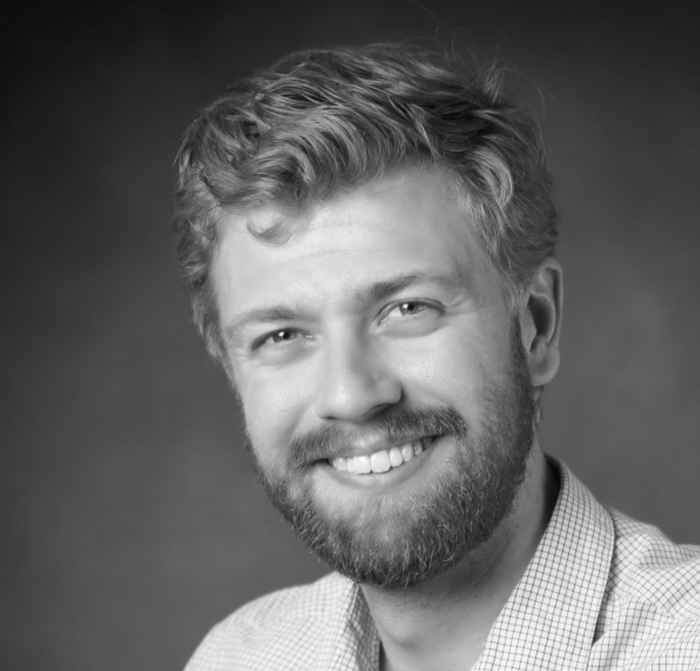Andrew Ferguson visiting professor at Amsterdam Centre for Multiscale Modelling
28 April 2022

The Amsterdam Centre for Multiscale Modelling (ACMM) is a cooperation between the Theoretical Chemistry groups of the Vrije Universiteit Amsterdam and the Computational Chemistry groups at the University of Amsterdam, bringing together expertise in the field of modelling of molecules, materials and biological processes. The ACMM has a tradition of appointing renowned researchers in one of these fields on its rotating chair for visiting professors. Ferguson is the ninth researcher to hold the chair, preceded amongst others by professors Michiel Sprik (Cambridge University) and Sauro Succi (Sapienza University of Rome).
Ferguson will hold the rotating ACMM chair until 30 April 2023, starting 1 May. He will visit Amsterdam for a number of periods, beginning in the months of May and June. He will primarily be engaged in research, but will also give a number of seminars and lectures. Ferguson is hosted by the Computational Chemistry group at the Van 't Hoff Institute for Molecular Sciences. At UvA he will also collaborate with the Computational Science group at the Institute of Informatics, the Computational Soft Matter lab and the AI4Science lab.
Understanding and controlling molecular and soft materials
Andrew Fergusson is active in the fields of molecular simulation, machine learning, and statistical thermodynamics with the goal of understanding and controlling both molecular and soft materials. Ferguson’s research uses computation and theory to understand and design self-assembling materials, macromolecular folding, and antiviral therapies. In his materials work, he applies nonlinear manifold learning to all-atom and coarse-grained simulations of polymers, peptides, and colloids to determine folding and assembly mechanisms and rational design principles. In his enhanced sampling work, he combines tools from dynamical systems theory and nonlinear manifold learning to recover folding landscapes from experimentally-accessible molecular observables, and uses tools from deep learning for on-the-fly collective variable identification and accelerated recovery of molecular free energy landscapes in molecular simulation.
See also
- Andrew Ferguson
- Ferguson Laboratory
- Amsterdam Centre for Multiscale Modelling (ACMM)
- AI4Science lab
- Computational Soft Matter lab
- Computational Chemistry research group